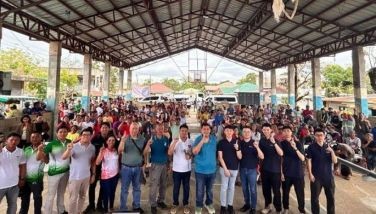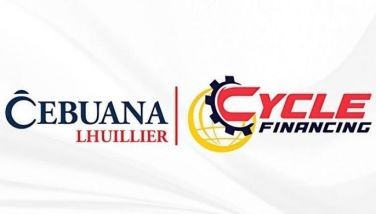WikiWreaks (havoc)
After our media in the court room piece last week, another issue involving the right to information on matters of public concern was brought to our attention albeit on the world stage. WikiLeaks (no relation to Wikipedia although I wonder why the latter has not filed a case to stop the use of its valuable Wiki name?), a website dedicated to acquiring confidential information, was able to download over 250,000 diplomatic cables from a supposedly secure network of the United States government. It then shared the information obtained with several leading newspapers such as the New York Times and the UK’s Guardian which, in turn, have been churning out various exposes. Information so far divulged include widespread corruption in Russia, Iraqi war mishaps and controversial (read: crude) comments made by US diplomats about certain world leaders.
The enigmatic founder of WikiLeaks, Julian Assange, an Australian who looks and acts like a character drawn straight from a Forsyth or Ludlum novel, is being tracked down by the Interpol on the basis of a Swedish arrest warrant for suspicion of rape. It is quite apparent however that the intensive manhunt was instigated by the diplomatic embarrassments caused by his website’s revelations. If we look at the general public reactions however, it would seem that there are more who are sympathetic to Assange’s cause as the information uncovered will temper and hopefully serve as a check to the sometimes arrogant display of power.
Back home, I would be curious to learn how the Philippines and its leaders have been portrayed to Washington by the US Embassy officials based in Manila and the latter’s reactions, if any. And if such a leak of information happened here and the government sought a restraining order, would the courts stop our newspapers from publishing the same?
The argument for publication would be anchored mainly on two Constitutional provisions. Article III, section 7 provides that “the right of the people to information on matters of public concern shall be recognized. Access to official records, and to documents and papers pertaining to official acts, transactions, or decisions, as well as to government research data used as basis for policy development, shall be afforded the citizen, subject to such limitations as may be provided by law.” Similarly, Article II, section 28 states: “Subject to reasonable conditions prescribed by law, the State adopts and implements a policy of full public disclosure of all its transactions involving public interest.”
Fairly recent Philippine jurisprudence indicates where the Supreme Court has drawn the line. While “on-going evaluation or review of bids or proposals being undertaken by the bidding or review committee is not immediately accessible under the right to information,” the Court will allow a citizen to access “official information on ongoing negotiations before a final contract.” “The information, however, must constitute definite propositions by the government and should not cover recognized exceptions like privileged information, military and DIPLOMATIC SECRETS (emphasis mine) and similar matters affecting national security and public order.”
But the fact that a private entity was the one that obtained and released the information, query as to whether a constitutional case can be made in the first place or just a civil action for damages?
On the other hand, the case for non-publication will be primarily based on the diplomatic secrets exception. Again as pointed out by jurisprudence, “a frank exchange of exploratory ideas and assessments, free from the glare of publicity and pressure by interested parties, is essential to protect the independence of decision-making of those tasked to exercise Presidential, Legislative and Judicial power.” Verily, releasing the information may strain our diplomatic relations with an important ally.
But the court ruling would also depend on the type of information contained. As mentioned earlier, negative descriptions of people do not seem “diplomatic” to begin with and probably not protected. And if these secrets were made for the purpose of hiding possible criminal activity or their revelation would positively impact our own national security, then the pros of disclosure would outweigh the cons of non-disclosure.
* * *
Best Practice: One centavo this week goes to the Department of Justice led by Secretary Leila de Lima for holding their executive planning session at Clark, Pampanga last weekend. Apparently, this is the first time in the Department’s 113-year history that a top brass meeting had been called to map out its five-year development plan which, in turn, will implement from a justice sector standpoint, President Aquino’s social contract with the Filipino people.
Perhaps the question in your mind is “why only now?” I had the same initial reaction but given my desire to be positive, I have since replaced it with “Better late than never.” Levity aside, our public sector agencies should pick up best practices from their private sector counterparts. And having planning sessions is not only a good opportunity to discuss an organization’s mission/vision and the tasks that need to be accomplished but for the officials to bond and get to know each other in a personal way.
* * *
Hail To Fils: Three centavos to this year’s Ten Outstanding Filipinos (TOFIL) awardees of the Philippine Jaycees — Dr. Esperanza Cabral (Government Service), Dr. Ray Catague (Public Health), Dr. Isagani Cruz (Literature), Ms. Shirley Halili-Cruz (Arts & Culture), Dr. Anthony Leachon (Medicine) and Fr. Joel Tabora, SJ (Education). Not surprisingly, the awardees are mostly doctors. Let me however single out two friends: Pfizer medical director, Tony Leachon, who is not only technically, but humanly proficient in his work. His pride and joy project is HERO (Health Education Reform Order) which advocates healthy living through programs that are designed to prevent the leading causes of sickness in the country. Also, Isagani Cruz, a colleague at FEU and this paper, continues to be an inspiration to his students and peers for his tireless work in the field of literature
* * *
”Failure is not fatal but failure to change might be.” — John Wooden
* * *
E-mail:deanbautista@yahoo.com
- Latest
- Trending

























